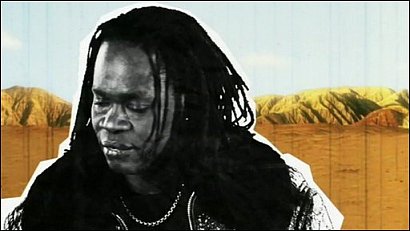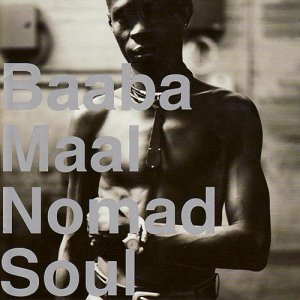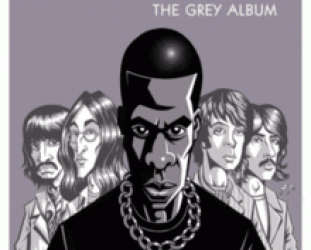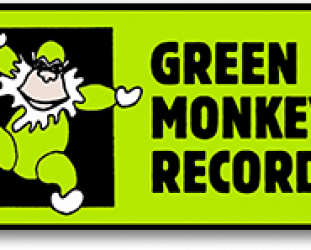Graham Reid | | 3 min read

It opens with a hush of Celtic-sounding voices, all that airy, Eirey ambience so familiar from Enya and the like.
But then something peculiar happens.
That isn't a guitar coming in there, but something more primitive sounding. Something more ... African? Then a penetrating voice slices across the top, a wail from some place more primal and universal.
When Senegalese singer Baaba Maal combines his distinctive voice with the sounds of western pop - as he does with Sinead O'Connor's backing singers on the opening track of his Nomad Soul album - something special happens.
The recent history of rock has been littered with used and discarded "world music" artists such as Nigerian King Sunny Ade and Algerian rai singer Khaled. Once record companies and collaborators have seen that there is little market for these exceptional artists in a world where the English language dominates, they have been abandoned.
Not so Baaba Maal. Nomad Soul still finds him on a major label (Island) and while not quite the winner his previous, politicised Firin' in Fouta was, it is still a high water mark in that curious territory where traditional African music intersects with popular culture.
 For Nomad Soul Maal works with
musicians as diverse as egghead producer Brian Eno, duets with reggae
singer Luciano, calls on the expertise of hip-hop producer Ron Aslan,
of Raw Stylus, and producer Simon Emmerson, of Afro-Celt Soundsystem.
For Nomad Soul Maal works with
musicians as diverse as egghead producer Brian Eno, duets with reggae
singer Luciano, calls on the expertise of hip-hop producer Ron Aslan,
of Raw Stylus, and producer Simon Emmerson, of Afro-Celt Soundsystem.
It's a powerful brew of Afrobeat and ambience, percussion and hip-hop. And everywhere that remarkable voice.
Speaking from Podor on the banks of the River Senegal, which separates his country from Mauritania, Maal is in good spirits. He's home after extensive touring in Europe and able to ground himself again in the music of his Fulani people.
"This is my country, this is where the birth of my music is coming from, this is the Senegalese music in the older concepts of this music from traditional to modern," he says.
In being a voice for his people, Maal is not unique. It is part of the tradition of the griot, the hereditary caste of singers, artists and cultural communicators. Yet Maal was not born into a griot family. His father worked the fields around Podor (population 6000), his mother wrote songs and encouraged her son's musical interests.
But when Maal went to school in St Louis, Senegal's colonial capital, he gravitated towards the sound of the West, especially the soul music of James Brown and Otis Redding, and the reggae of Bob Marley and Jimmy Cliff.
"When I was young I was curious to see what American black people sang, or to hear a singer like James Brown, for example, whose style is very close to what I know."
On leaving college he pursued his own musical direction, notably with the guidance of griot guitarist Mansour Seck, who remains in his band and is a mentor.
"Yes, Mansour Seck is a part of me. You can't talk about Baaba Maal's career without mentioning Mansour; it's the same for him."
With Seck, Maal established himself in Paris after winning a scholarship from the musical conservatory in Dakar and reembraced the traditional music of his Fulani people.
"The difference in my music from other music in Senegal comes mostly from the language and the ethnic group. I am Fulani and Fulani people are in the Gambia, Mali, Mauritania, everywhere in Africa. So I am connected to the rest of Africa and have the ability to touch other people's cultures."
The message is also predominant in Maal's often mystical lyrics, sung usually in Fulani or French. He holds to a mystic branch of Islam yet speaks eloquently of the "universality of mankind." His marriage of intellect and energy has endeared him to the Senegalese and he acknowledges that he has become something of a role model back home.
The fusion he explores with western musicians cannot be stopped, he says, and the question is at what point should African artists stop taking from the outside if it is to the detriment of traditional musics.
Maal's albums suggest he's found a useful pivotal point, but his shows - with 13 people on stage, costume changes and traditional dancing - serve a different purpose, he says.
"With my albums I want to show that Africa can work with whatever is happening now. But when I am touring I want to get people and bring them to Africa."





post a comment